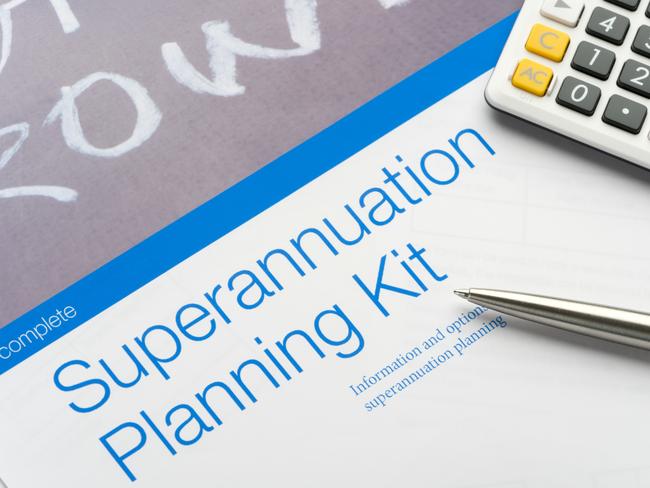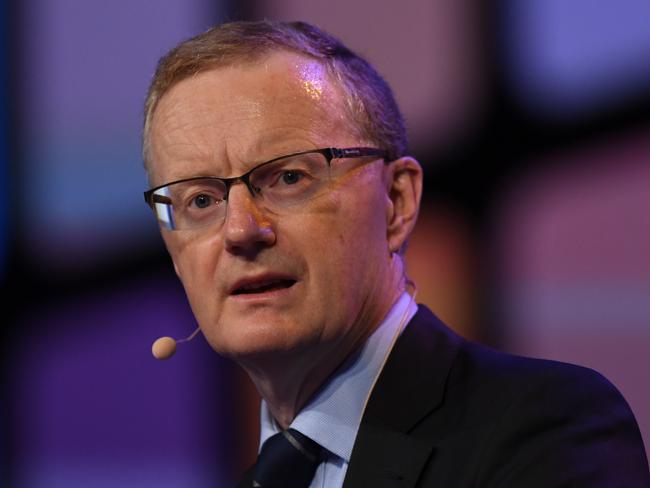Terry McCrann: A $2.6 trillion problem needs a careful solution
OUR superannuation system is not broken, but as the Productivity Commission report so devastatingly shows, it is not working well, writes Terry McCrann.
Terry McCrann
Don't miss out on the headlines from Terry McCrann. Followed categories will be added to My News.
OUR $2.6 trillion superannuation system — that’s about $200,000 for every single employed person in Australia — is not broken.
But as the Productivity Commission report so devastatingly shows, it is not working well. Indeed, in some very specific, but also very important, ways it is not working at all.
And this in turn undermines the fundamental and indeed whole purpose of the system — to fund both individual retirements at a better standard than the age pension, and therefore to significantly reduce the community reliance on the pension.
When you add in the continuing political ‘interventions’, we are headed for the worst of all possible worlds.
PRODUCTIVITY COMMISSION REVEALS BLUEPRINT TO REFORM SUPER
BAREFOOT INVESTOR: BIG QUESTIONS OVER A SUPER RIP-OFF
HOW TO BOOST YOUR SUPER BALANCE
This is, brutally and simply, where super works only as a means of forced but underperforming saving for most people; to be cashed on retirement, with the ‘saver’ then going on a full or partial pension.
The focus of the report was on how the mess that is super is not working for individuals.
While some of the figuring might have been a little — OK, a lot — exaggerated, for either clarity (the good motive) or for effect (the not-so-good motive), on average across the system, individuals are not getting good (or even, arguably, fair) value for their forced savings.
In part it’s their own fault. If someone’s got three or four super accounts where the income and indeed the capital is being chewed up by fees (and to a lesser extent, by underperformance), it’s up to the individual to consolidate.
But in the major part it’s the system’s fault. Nobody’s been really minding the shop. The only winners have been the vast mass of people in the industry ‘clipping the ticket’ to the tune of tens of billions of dollars every year.
This means that super is not working for the taxpayer. The frenzy over tax incentives supposedly going to higher income earners misses the bigger point: all the incentives might not be getting good value or indeed any value for the taxpayer.
The only justification for both the compulsory nature of the system and the tax incentives is the intended ‘payback’ in reduced pension costs on retirement.
So every dollar of underperformance along the lifetime of super saving is in fact a penalty on the taxpayer just as much as on the saver.
What is also never recognised is that the system is not working well for businesses at the individual level and for the economy overall.

The compulsory super contributions work — negatively — in exactly the same way as the so-called ‘tax wedge’ does.
A worker might cost a business, say, $1000 a week in wages and other employment costs, but the worker only gets, say $800 a week because of PAYE tax. That’s the tax wedge.
The 9.5 per cent compulsory super just increases the gap between what the employee gets in their pocket and what he or she costs the employer.
Yes, unlike with tax, they will eventually ‘get’ the super. But if the investment management underperforms and costs are unnecessarily high, they won’t ‘get’ much at all.
At core, the PC report was about proving the negative power of compound interest — which, in its positive form, is the greatest thing working for a saver.
In the negative — either a low positive or an actual negative — the power of compounding is even more punishing.
There are some basic ways of doing it better. Some of these — like consolidating your different funds into one — are in the hands of the individual. Others are systemic — like developing MySuper into a suite of cleaner basic super offerings.
But we need really fundamental root and branch reform — intelligently done. So we need to take great care in rushing to sweeping solutions.
That’s in a sense how we created the monster in the first place: Paul Keating’s ‘good idea at the time’; deigning a good system to ‘come later’ (like: never).
Everyone got ‘lucky’ as compulsory super kicked off after the 1987 global stockmarket crash, and then headed straight into almost two decades of double-digit returns every year, until we hit the 2008 Global Financial Crisis. Those high returns basically papered over all the cracks — the underperformance, the excessively high fees, and so on.
Now, in a world of low single-digit returns, they are all coming to the surface, while the fundamental defects in the whole system are also being exposed.
Making the ‘solution’ even more complicated, are all the issues being raised in the banking royal commission.
I fear we are going to get essentially more of the underperforming same.

RATES WILL BE RATES UNTIL WHEN
WHOA! All Reserve Bank board member Ian Harper stated was the bleeding obvious.
He said that falling house prices wouldn’t stop the RBA from raising its official interest rate when the RBA had a basis for raising.
Let me both simplify what he said: if the RBA decided to raise rates, it would, well, raise rates.
And expand it: if the RBA decided to raise rates when housing prices were falling; it would have incorporated that — plus, everything else — into its assessment.
More importantly, this is all entirely hypothetical.
The RBA has absolutely no intention of raising its rate anytime soon. When it meets next Tuesday it will once again make that clear.
More importantly, you should not assume — like almost all the commentators — that the next move will be a hike. Who knows? As the RBA will be assessing the world at the time it decides to change, not what it now expected it to be.



